Service Dog Training
We specialize in training service dogs tailored to meet your specific needs, ensuring they become a reliable and trusted companion.
Inquire Today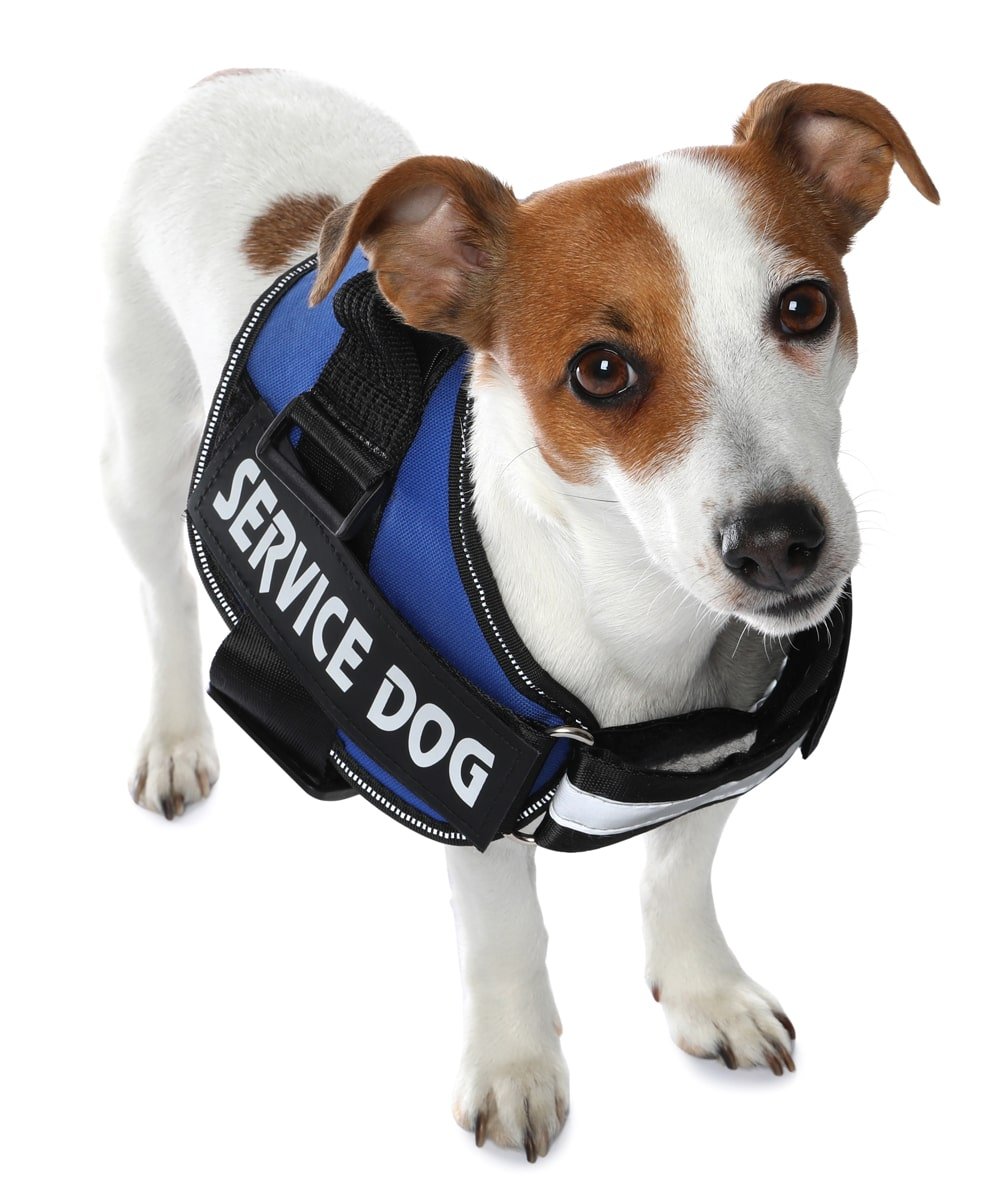
What is a Service Dog?
A service dog is more than a companion; it’s a trained professional. The Americans with Disabilities Act (ADA) defines a service dog as a dog individually trained to perform tasks or do work for a person with a disability. These tasks can assist with physical, sensory, psychiatric, or other impairments, enabling individuals to lead more independent and fulfilling lives.
Service dogs are specifically trained to assist with daily tasks, improve safety, and enhance the quality of life for their handlers.
Service Dog Task Training
Service dogs perform a wide range of essential tasks to assist individuals with disabilities, including but not limited to:
- PTSD Support: Helping manage panic attacks, reducing the severity and frequency of nightmares, and anchoring their handler during flashbacks.
- Anxiety and Depression Management: Assisting with the reduction of anxiety, depression, and suicidal ideation by providing emotional support and interruption of negative behaviors.
We recommend starting service dog training with a young puppy to ensure proper socialization and to mold them into the ideal service dog for your specific needs. If you’re unsure how to select the right puppy, we’re happy to assist in finding a suitable candidate.
What Can Service Dogs Do?
Service dogs are trained to assist their handlers with a wide variety of tasks that can greatly enhance independence and quality of life. Depending on their training and the specific needs of their handler, service dogs can:
- Provide psychiatric support for individuals with conditions like PTSD, severe anxiety, and panic disorders through deep-pressure therapy, interrupting harmful behaviors, and grounding the handler during flashbacks.
In addition, service dogs are trained to accompany their handlers in various environments, including airplanes, restaurants, schools, and public events like concerts or movie theaters. This ensures that the handler always has the support they need, regardless of the situation.
For individuals with PTSD or severe anxiety, service dogs play a critical role by:
- Interrupting panic attacks and negative behaviors.
- Reducing nightmares and flashbacks.
- Assisting with reintegration into society by providing emotional stability and safety.
- Anchoring the handler during episodes of dissociation or suicidal ideation.
ADA Protections and Public Access Rights
Under the ADA, service dogs are legally protected and allowed to accompany their handlers in all public areas, including restaurants, public transportation, workplaces, and more. These protections ensure that individuals with disabilities are not denied access to public places or services due to their service dog.
- Public Access Rights: Service dogs are allowed in public places without fees or additional restrictions.
- Housing Protections: Service dog handlers are also protected under housing laws, meaning landlords cannot deny housing to someone with a service dog, even in no-pet buildings.
Understanding these rights ensures that handlers and businesses alike know how service dogs must be accommodated.
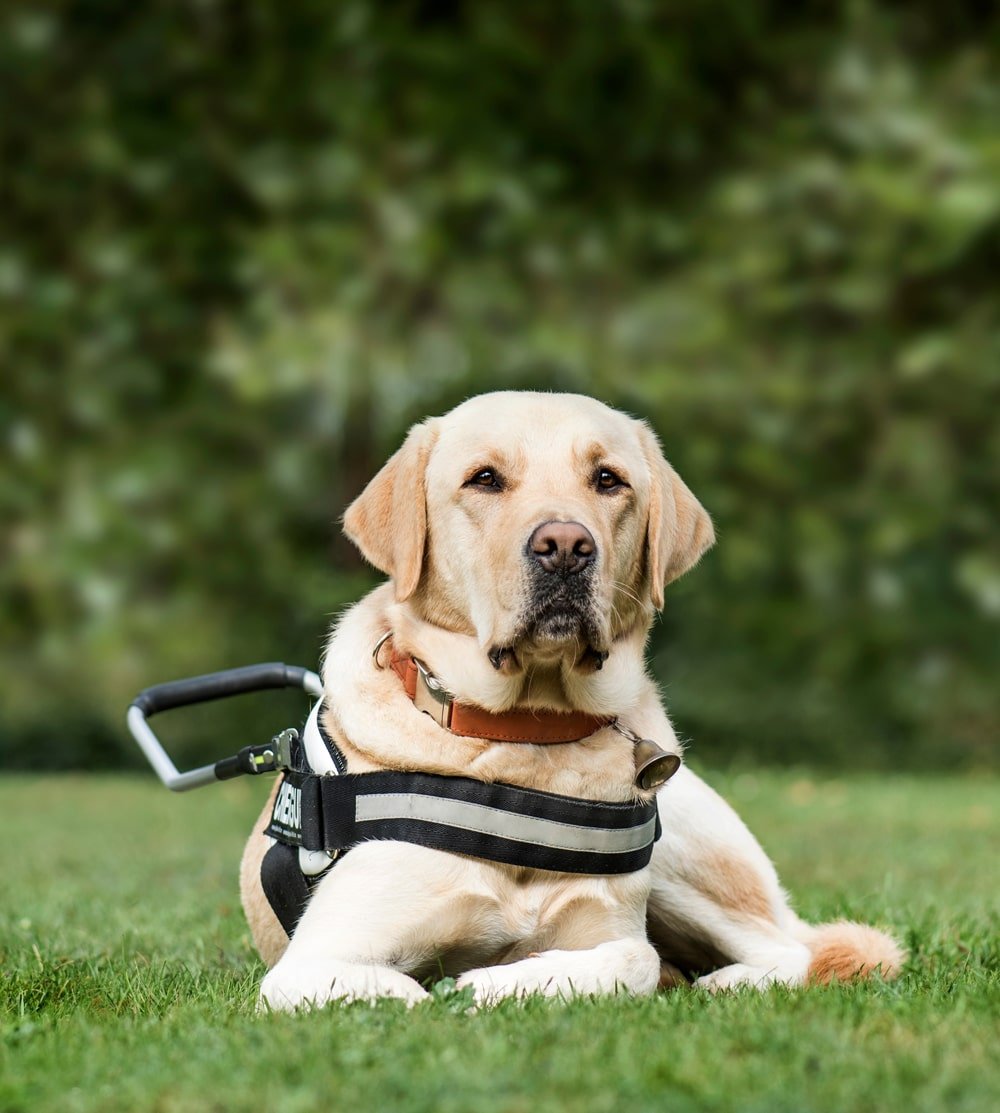
The Service Dog Training Process
Our service dog training program is structured around three phases:
Phase 1: Basic Obedience and Socialization
Ensuring the dog is well-behaved and can function appropriately in public.
Phase 2: Task-Specific Training
Teaching the dog to perform specific tasks tailored to the handler’s needs.
Phase 3: Public Access Training
Preparing the dog for public environments, ensuring they remain calm and responsive in crowded spaces and can ignore distractions.
We use a lot of positive reinforcement techniques to build a strong, lasting relationship between the service dog and their handler, focusing on reward-based training to ensure the dog’s happiness and engagement.
Psychiatric Service Dogs
For individuals with psychiatric conditions such as PTSD, depression, or anxiety, psychiatric service dogs can be life-changing. These dogs are trained to help with:
- Interrupting harmful behaviors such as self-harm or obsessive-compulsive behaviors.
- Performing deep-pressure therapy to reduce anxiety and panic attacks.
- Providing emotional support by creating a safe and calming presence in stressful situations.
- Grounding their handler during dissociative episodes or severe flashbacks.
These tasks provide both immediate relief and long-term emotional support, allowing individuals to regain control over their lives.
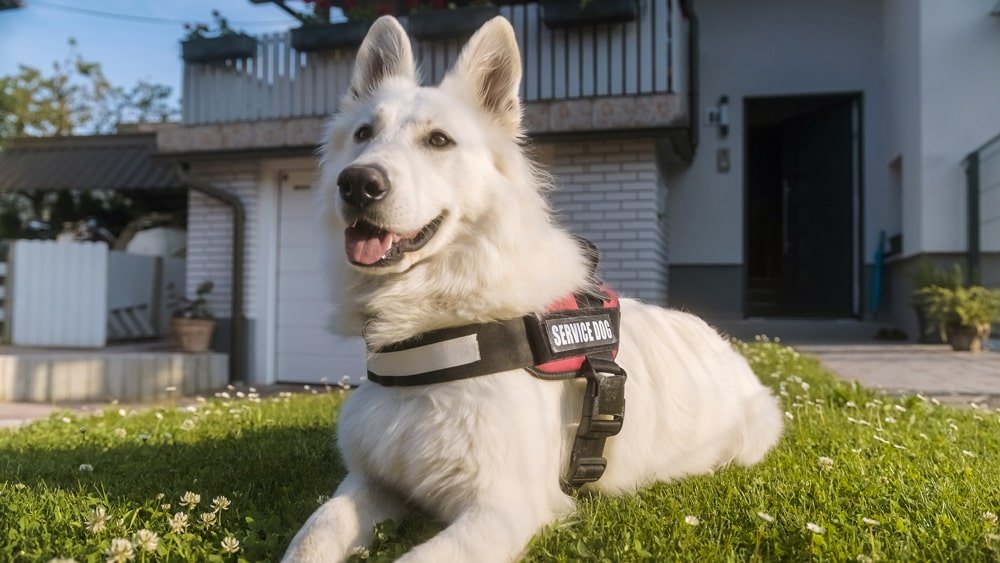
Why Choose The Art of Dog Training for Service Dog Training?
Certified Trainers
Our team consists of certified trainers with years of experience in training service dogs for a wide variety of disabilities, ensuring they are highly capable and dependable.
ADA Compliance
All dogs we train meet the strict standards set by the ADA, ensuring they are fully protected under the law and granted public access rights.
Tailored Training Plans
We customize each training program to match your unique needs, whether you require mobility assistance, medical alerts, or psychiatric support.
Ongoing Support
We provide continuous training and support to ensure your service dog remains responsive and reliable throughout its working life.
How to Get a Service Dog
At The Art of Dog Training, we offer two pathways to acquiring a service dog:
- Training Your Own Dog: We can assess your current dog for suitability and guide you through the training process.
- Selecting and Training a New Dog: We can help you select the right service puppy from a reputable breeder and train them from the ground up, ensuring they meet your specific needs.
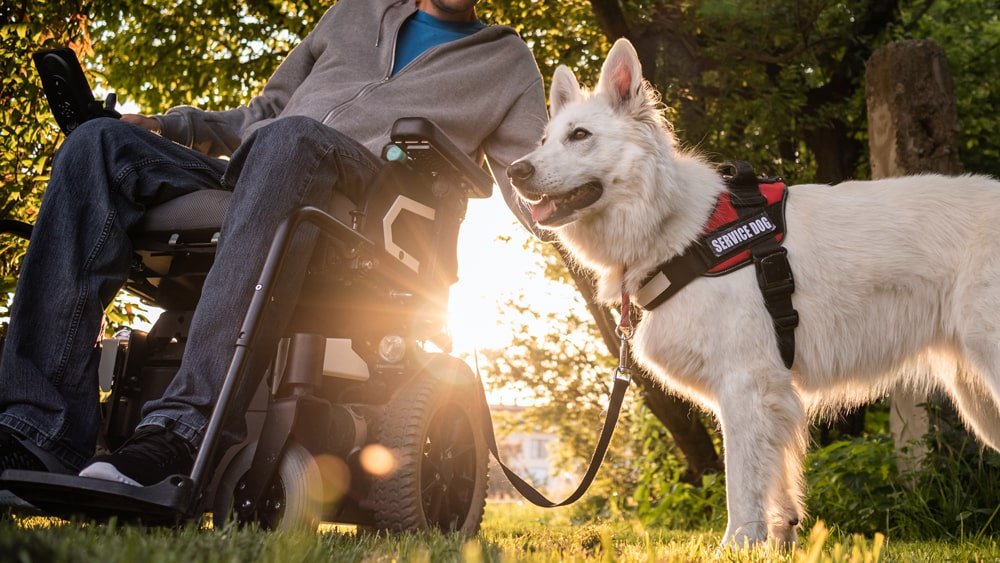

Statistics on Service Dogs
Here are some key statistics that highlight the importance of service dog training:
- 75% of individuals report an improved quality of life after receiving service dog training
- 40% reduction in medical expenses for individuals who rely on service dogs
- 12 million people in the U.S. require a service dog
- In Reading, PA, 30% of organizations offering disability support use service dog training programs
- The demand for service dog training has increased by 25% over the past three years
Pricing for Service Dog Training
$2,995
PTSD or Psychiatric Support Service Dogs
8 in-home sessions, 24 group sessions
Everything included with the obedience package
The “Heel” command
3 of the included sessions in public
Public access testing
Service vest/ID cards
Online accreditation with a service dog registry
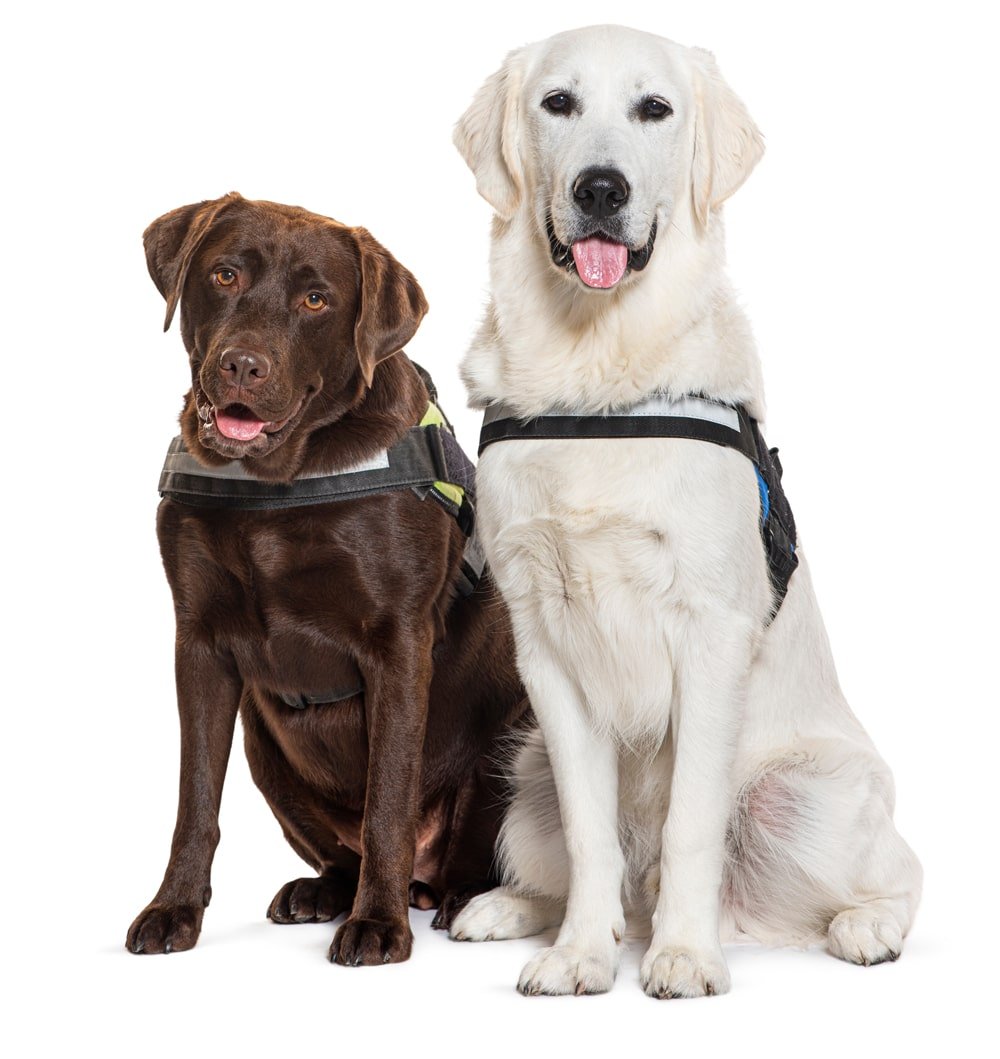
Related Services
Explore our additional services that complement puppy training and ensure lifelong success:

How to Get Started
Take the first step toward greater independence by contacting us for a free evaluation.
Frequently Asked Questions
What is the difference between a service dog and an emotional support animal (ESA)?
A service dog is trained to perform specific tasks to assist an individual with a disability, as defined by the Americans with Disabilities Act (ADA). These tasks directly mitigate the effects of a disability. An ESA provides emotional comfort but is not trained to perform tasks and does not have the same public access rights under the ADA.
What types of tasks can a service dog be trained to perform?
Service dogs can be trained to perform a variety of tasks, depending on the handler’s needs, including:
- Providing deep-pressure therapy for anxiety or PTSD
- Interrupting harmful behaviors or grounding during emotional distress
Does the ADA protect my right to take my service dog into public places?
Yes, under the ADA, service dogs are legally allowed to accompany their handlers in all public places, including restaurants, stores, public transportation, and workplaces. Businesses are prohibited from asking about the handler’s disability, charging additional fees, or denying access due to the presence of a service dog.
What breeds are best suited for service dog training?
While Labrador Retrievers, Golden Retrievers, and German Shepherds are among the most popular breeds due to their trainability and temperament, we assess each dog individually. The right service dog must have the temperament, confidence, and physical ability to perform specific tasks consistently in a variety of environments.
Can I train my own dog to be a service dog?
Yes, it is possible to train your own dog to be a service dog if they have the right temperament and abilities. At The Art of Dog Training, we offer guidance and support for owners who wish to train their own dog. However, not all dogs are suited for service work, and our trainers can help assess your dog’s potential for success.
How do you select dogs for service dog training?
We carefully evaluate each dog’s temperament and health to ensure they have the characteristics necessary for service work. Not every dog is suited for this demanding role, so our selection process includes assessments of the dog’s ability to handle stress, focus, and perform tasks reliably. Dogs with calm, confident temperaments are typically the best candidates.
What ongoing support do you provide after my service dog is trained?
At The Art of Dog Training, we provide ongoing support to ensure your service dog remains responsive and continues to perform tasks reliably. This includes follow-up training sessions, refresher courses, and guidance for any new challenges you or your dog may encounter. We are committed to helping you maintain a strong working relationship with your service dog throughout their service life.
How much does it cost to train a service dog?
The cost of training a service dog is $2,995. Contact us for a free consultation to discuss details.

